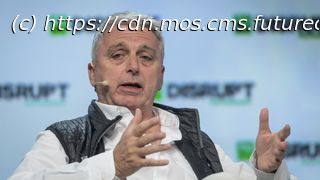Unity’s new Runtime Fee will charge developers on a per-install basis.
Indie game developers are up in arms over changes to Unity’s pricing system that will see them charged on a per-install basis once certain thresholds are met. The developers say the changes could end up costing them more than their games will ever actually make, and worse, leaves them vulnerable to abuse and impacts their ability to take part in game giveaways, bundles, and and even subscription services like Game Pass.
On January 1, 2024, Unity will start charging developers a new “Unity Runtime Fee” that will apply every time a game is installed after a game passes minimum revenue and install count thresholds. For users of Unity Personal, which is free, and Unity Plus, those thresholds are $200,000 over the past 12 months, and 200,000 lifetime installs—after those numbers are surpassed, developers will have to pay Unity 20 cents per install. Higher cost versions of Unity have higher thresholds and lower per-install fees.
On the face of it, it seems like a reasonable deal: If you, a solo developer, make $200,000 in a year off a little indie game you cooked up in Unity, paying a small fraction of what you earn on sales on top of that hardly seems unusual. After an Unreal Engine game makes $1M in revenue, for example, Epic collects 5% of all future revenue. But indie developers were almost unanimously outraged by the change: Tom Francis, the designer and coder of Heat Signature, described the change as “an astonishing scumbag move.”
Francis’ major complaint wasn’t the new fee structure itself, but the way Unity imposed it on developers who have already released games using the Unity engine: The Unity Runtime Fee FAQ says the new charge “applies to eligible games currently in market that continue to distribute the runtime” after January 1.
“A partner who can and will change how much of your revenue you owe them *after* you’ve made and released your game needs to be avoided like the plague,” Francis tweeted. “I hadn’t realised they even legally could. I gather Epic’s Unreal license is perpetual per-version, so whatever the deal is when you commit, you’re guaranteed that forever if you’re happy to stick with that version.
“[Epic’s] 5% is more than Unity’s new fees in most scenarios, but compared to a company that can help themselves to any amount of your money at any time, suddenly sounding more reasonable.”
Similar sentiments were shared by The Falconeer developer Tomas Sala, who wrote that he’s already committed to the Unity engine for his new game, and has put “years and years of work” into it.
“I did so under a simple per seat license I am happy to pay. Now while I am close to release they spring something new on me,” Sala wrote. “Not a price increase a fundamental change in how we do business together. I have no options, cannot go back, can only bend and payup. It’s form of blackmail.
Home
United States
USA — software 'An astonishing scumbag move': Indie developers react to surprise Unity engine pricing...






